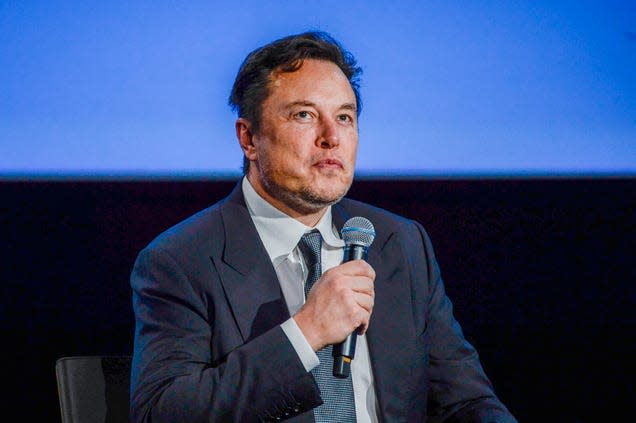Not even World War III would let Elon Musk out of his Twitter deal

Elon Musk is fighting tooth and nail to get out of his $44 billion deal to buy Twitter. The problem is there aren’t a lot of ways he can get out of it.
In a subpoenaed text message sent on May 8 to Morgan Stanley banker Michael Grimes, Musk wrote, “Let’s slow down just a few days. Putin speech tomorrow is extremely important. It won’t make sense to buy Twitter if we’re heading into World War III.”
Read more
Federal Judge Rules That Employers Can Refuse to Cover HIV Prevention Drugs on Religious Grounds
World's Largest Cruise Ship to Be Scrapped Before First Voyage
Dr. Oz on Incest: More Than First Cousin? 'Not a Big Problem.'
The Manual-Transmission 2023 Toyota GR Supra Is Everything You Hoped it Would Be
There are three problems with this statement: First, Musk had already agreed to buy Twitter on April 25. Second, that agreement had a specific performance clause, meaning that he might not merely be liable for civil damages for breaking the contract; he could be forced in court to buy Twitter. Third, World War III won’t let him out of the deal.
According to the merger agreement (pdf), Musk would have to demonstrate that something has had a “material adverse effect,” or MAE, on Twitter’s business in order to get out of the deal. Here’s how the merger agreement defines an MAE (bold added for emphasis):
“Company Material Adverse Effect” means any change, event, effect or circumstance which…has resulted in or would reasonably be expected to result in a material adverse effect on the business, financial condition or results of operations of the Company and its Subsidiaries, taken as a whole; provided, however, that changes, events, effects or circumstances which, directly or indirectly, to the extent they relate to or result from the following shall be excluded from, and not taken into account in, the determination of Company Material Adverse Effect: (i) any condition, change, effect or circumstance generally affecting any of the industries or markets in which the Company or its Subsidiaries operate; (ii) any change in any Law or GAAP (or changes in interpretations of any Law or GAAP); (iii) general economic, regulatory or political conditions (or changes therein) or conditions (or changes therein) in the financial, credit or securities markets (including changes in interest or currency exchange rates) in the United States or any other country or region in the world; (iv) any acts of God, force majeure events, natural disasters, terrorism, cyberattack, data breach, armed hostilities, sabotage, war or any escalation or worsening of any of the foregoing; (v) any epidemics, pandemics or contagious disease outbreaks (including COVID-19) and any political or social conditions, including civil unrest, protests and public demonstrations or any other COVID-19 Measures that relate to, or arise out of, an epidemic, pandemic or disease outbreak (including COVID-19) or any change in such COVID-19 Measures, directive, pronouncement or guideline or interpretation thereof, or any continuation or of any of the foregoing, in the United States or any other country or region in the world
So, it’s going to take more than World War III to get Musk out of the Twitter deal. But Musk did get one win in court today.
While Delaware chancellor Kathaleen McCormick denied Musk’s request to delay the trial, she allowed Musk to add Twitter whistleblower Peiter Zatko’s allegations as possible grounds for walking away from the deal. Zatko alleged in a federal whistleblower complaint that Twitter has had serious security flaws and violated its 2011 FTC consent decree in mishandling user data. That’ll be a sharper point of argument than anything about World War III.

